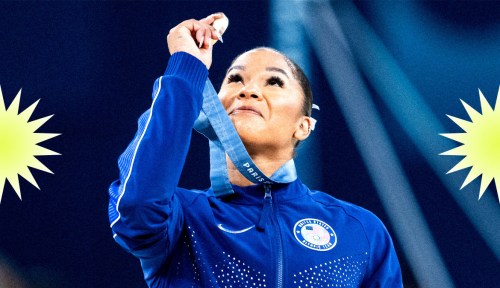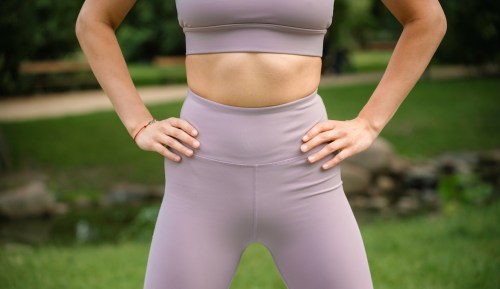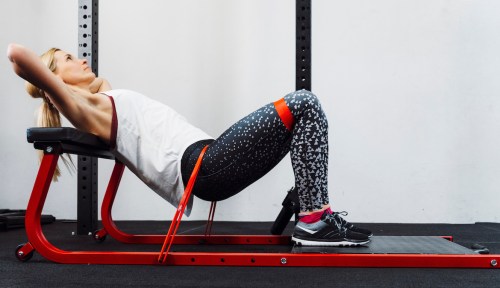The Paris 2024 Olympic Games ended nearly a month ago, but drama from the gymnastics floor finals continues: a deeper look at the ruling from the Court of Arbitration for Sport (CAS) has raised more questions than answers. In case you missed it, Jordan Chiles won an individual bronze medal for her floor routine on August 5 after an inquiry was made on her behalf that boosted her score. Then, the Romanian Gymnastics Federation asked for a re-evaluation, and the International Olympic Committee (IOC) agreed to give the bronze to Ana Bărbosu instead.
This would be Chiles’s only individual medal from this Olympics (her other medal from the Paris Games is a gold from the team all-around competition), and if it’s stripped from her, it would be the first time this has happened to an Olympic athlete who didn’t violate any rules. Who is truly at fault has become muddied: USA Gymnastics (USAG) is now pursuing an appeal with the Swiss Tribunal, according to a statement on August 12. But the latest evidence from the original ruling by the CAS makes the International Gymnastics Federation (FIG) look particularly bad.
Here’s the timeline of the saga, plus reactions from the gymnastics community.
A timeline of events
August 5
- Chiles competed in the artistic gymnastics floor finals. She initially received a score of 13.666 for her routine, which put her in fourth place behind Romania’s Ana Bărbosu, according to USA Today.
- Chiles’s coach, Cecile Canqueteau-Landi, submitted an inquiry regarding her score because she thought the judges didn’t credit Chiles for a skill.
- The judges approved Canqueteau-Landi’s inquiry and increased Chiles’s difficulty score by 0.1, which put her total score at 13.766. This new score moved Chiles up to third place, ahead of Bărbosu (now in fourth place). Chiles received a bronze at the medal ceremony after the floor finals.
August 10
- The CAS issued a ruling that recommended Chiles’s original floor routine score be reinstated.
- This came after the Romanian Gymnastics Federation asked FIG for Canqueteau-Landi’s inquiry to be re-evaluated—the Romanian Gymnastics Federation argued Team USA’s inquiry was submitted past the 1-minute deadline, voiding the inquiry altogether.
August 11
- Following the CAS ruling, the IOC) said the organization “will reallocate” the bronze medal from Chiles to Bărbosu.
- The United States Olympic & Paralympic Committee (USOPC) said in a statement that USA Gymnastics (USAG) has timestamped video footage that Canqueteau-Landi first stated her request to file an inquiry 47 seconds after Chiles’ score was posted and followed up again 55 seconds after the score was initially posted. “The video footage provided was not available to USA Gymnastics prior to the tribunal’s decision and thus USAG did not have the opportunity to previously submit it,” the statement said.
- The USOPC has submitted this video to appeal the initial ruling from the CAS.
August 12
- USAG was notified by the CAS that their rules don’t allow a final decision to be reassessed “even when conclusive new evidence is presented,” according to a statement USAG posted to their Instagram.
- USAG vows to continue appealing on Chiles’s behalf, including to the Swiss Tribunal.
August 14
- CAS releases the document of their hearing and ruling and the crux of the question—whether or not the inquiry for Chiles’s original score came in time—isn’t answered clearly.
- Donatella Sacchi, FIG president, accepted Chiles’s inquiry because she thought it was submitted within the 1-minute time frame. But it turns out FIG doesn’t have a way to timestamp submitted inquiries. FIG also claimed that it couldn’t find the person who originally submitted the inquiry.
- The CAS panel “was surprised that the FIG was not able to identify the person who recorded the information as to time, and that no clear and established mechanism appeared to be in place to address so important a matter as the timing of a request for an inquiry,” according the document.
- What’s more, CAS was sending emails to the wrong addresses leading up to the hearing. In a statement to CNN, the USOPC said that “from August 6 to 9, CAS sent crucial communications to erroneous email addresses at USOPC and USAG, an error not corrected until August 9–three days after filing, two days past the deadline to submit objections, and less than 24 hours before the hearing … [depriving] us of adequate time to respond meaningfully or gather necessary evidence. We informed CAS of our objections immediately.”
- The mess of the original inquiry, how it was handled by FIG, and how the proceeding appeals have been handled by CAS, may help Chiles’s appeal to the Swiss Tribunal.
September 16
- Chiles’s attorneys announce they’ve filed a formal appeal with the Swiss Federal Tribunal (the highest court in Switzerland) regarding her floor exercise results, per Business Wire. They’re asking the tribunal to overturn the initial CAS ruling.
- Her attorneys cite two reasons the initial CAS ruling was flawed: Chiles’s “right to be heard” was violated and the president of the arbitration panel who heard the case has represented Romania before, making it a “serious conflict of interest.”
Reactions from Chiles and her coaches, teammates, and family
According to Yahoo! Sports, after the announcement of the decision, Chiles posted a now-deleted Instagram story that said: “I am taking this time and removing myself from social media for my mental health thank you.”
In the comments of her August 6 Instagram post, Canqueteau-Landi wrote: “I shouldn’t have to explain but I will ONCE. Jordan’s highest possible SV on floor is a 5.9- At quals and team finals she received a 5.8 and we didn’t question it because we saw that not all elements were completed. During floor finals, we thought [it] was better and being placed 5th with nothing to lose, I sent the inquiry so I wouldn’t regret not asking. I didn’t think it would be accepted and at my surprise it was.”
She went on to say: “Do I feel bad for the Romanian athlete? Of course I do! It was so sad and heartbreaking to see but it is the sport! You don’t have to like it but you do have to respect the outcome and more importantly respect Jordan and not drag her down because you disagree. She EARNED that bronze medal, her 1st individual Olympic medal and I couldn’t be more proud and excited!”
Chiles’ sister, Jazmin, posted a now-deleted Instagram story that said: “Racism is real, it exists, it is alive and well. They have officially, five days later, stripped her of one of her medals. Not because she didn’t win, not because she was drugged, not because she stepped out of bounds. Not because she wasn’t good enough. But because the judges failed to give her difficulty and forced an inquiry to be made.”
Chiles’ teammates, Suni Lee, Jade, Carey, and Simone Biles, all posted Instagram stories in support of Chiles as well. And, two-time Olympic gymnast Alexandra Raisman posted on X (formerly Twitter): “Don’t have the words right now. But this is so unacceptable & heartbreaking. No athlete should ever go through this. This is unfair & cruel. Athlete fairness & athlete mental health matters. Athletes should not suffer from mistakes that are out of their control. & the bullying must stop!”
On August 16, Chiles returned to social media to post a statement on Instagram, thanking her “family, teammates, coaches, fans, USAG, and the USOPC for their unwavering support during this difficult time.” Chiles called this “one of the most challenging moments of my career.”
Has anything like this ever happened before?
In short: no. While there have been instances where Olympians have had to give back their medals, it’s been due to illegal activities like doping or purposely falsifying information, NBC News reports. A few examples include:
- Jamaican sprinter Usain Bolt had to return his 4×100-meter relay gold medal after teammate Nesta Carter’s doping violation led to the team’s disqualification nine years after the 2008 race.
- The 2000 Chinese gymnastics team had to return their bronze medal in the team competition 10 years after the fact because team member Dong Fangxiao falsified her age in order to meet Olympic requirements (she was found to have been 14 years old when the age requirement is 16 years old).
But there hasn’t been an occasion where an athlete has had to give up their medal when the situation was no fault of their own.
What happens next?
USAG will continue to “pursue every possible avenue and appeal process” to ensure the proper scoring and award for Chiles, according to their August 12 statement. We await news from the Swiss Tribunal on how the USAG appeal will be handled.
Sign Up for Our Daily Newsletter
Get all the latest in wellness, trends, food, fitness, beauty, and more delivered right to your inbox.
Got it, you've been added to our email list.











